Ingmar Bergman once said, “With the risk of being misinterpreted, I say that fidelity often plays too great a role in a marriage.” That may be, but it certainly plays almost no role in marriage on film, with hundreds of stories of cheating spouses causing all manner of dramatic conflict. But perhaps it is the comedy that is better suited to exploring the sometimes arbitrary nature of modern relationships, and the silliness inherent in believing oneself capable of ongoing deceit and subversion. With that in mind, and looking ahead to this Friday’s release of The Other Woman, let’s take a look at ten (or twelve) great comedies about infidelity and philandering.
10.) My Favorite Wife (Garson Kanin, 1940)
Following a seven-year effort, Nick Arden (Cary Grant) has determined that his shipwrecked wife, Ellen (Irene Dunne) is just not to be found, has her declared legally dead, and immediately goes about marrying Bianca (Gail Patrick). He’s just left for his honeymoon, and all that implies, when Ellen turns back up, alive and well, having survived the ensuing years on a deserted island with the company of the exceedingly masculine Stephan Burkett (Randolph Scott). And, well, best not to discuss the precise nature of those years and focus on what’s ahead, right? As Nick tries to navigate the problem of having two wives, and Ellen only teases out minute details of those desert years, the film manages to explore the implications and difficulties of infidelity without directly saying anyone is sleeping with anyone else.
9.) Unfaithfully Yours (Preston Sturges, 1948)
Like My Favorite Wife, Preston Sturges’s formally dynamic comedy manages to address the effects of infidelity head-on without directly portraying such Code-forbidden acts. Rex Harrison plays a symphony conductor who, upon returning from a trip, learns that his wife spent a surprising amount of time at an alarmingly late hour with his right-hand man. Rather than confront her about it, he proceeds to fantasize different ways in which to exact revenge, which are spectacularly brought to life as Harrison conducts three different classical pieces. Following through on these schemes becomes an entirely more complicated matter, and Harrison’s realization of a man coming apart at the seams is so sharply-observed, a bundle of wounded ego and misplaced pride, he more than carries the film.
8.) Waitress (Adrienne Shelly, 2007)
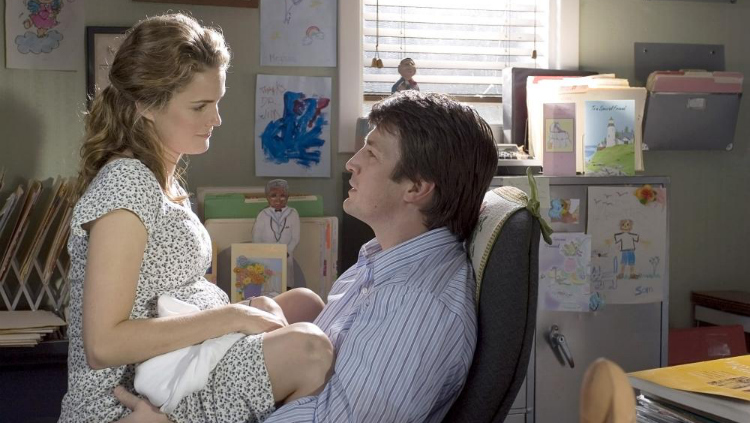 Waitress toes some interesting lines, tonally, taking with complete seriousness the horrible marriage in which Jenna (Keri Russell) is trapped, and the unwanted baby that complicates her plans to escape. At the same time, when the opportunity arises for an affair with the small town’s new physician, Jim (Nathon Fillion), writer/director Adrienne Shelly is happy to indulge it with a full romantic comedy, even slapstick vibe. Nobody said infidelity couldn’t be a load of fun, especially at the expense of an abusive husband.
Waitress toes some interesting lines, tonally, taking with complete seriousness the horrible marriage in which Jenna (Keri Russell) is trapped, and the unwanted baby that complicates her plans to escape. At the same time, when the opportunity arises for an affair with the small town’s new physician, Jim (Nathon Fillion), writer/director Adrienne Shelly is happy to indulge it with a full romantic comedy, even slapstick vibe. Nobody said infidelity couldn’t be a load of fun, especially at the expense of an abusive husband.
7.) City of Women (Federico Fellini, 1980) & Shampoo (Hal Ashby, 1975)
Marcello Mastroianni and Warren Beatty remain two gigantic icons for male sexuality run amok, famously exploiting their charm and fame to bed countless women. It is only natural that each should take at least one film to reflect on this, and, despite their somewhat lesser reputations, City of Women and Shampoo are actually two of the finest films in each actor’s filmography. City of Women becomes a chance for Mastroianni and writer/director Federico Fellini to reflect on their earlier masterpiece 8½, and consider all that has changed about themselves and the world around them – noting that, following the rise of feminism, the Mastroianni figure now looks quite silly, out of place, and tragically (if hilariously) single-minded.. Shampoo has a similar political drive – released in 1975, it takes place on the eve of the 1968 presidential election, as George (Beatty), a hairdresser, tries to navigate the lives of his many lovers and advance his own station in life, despite not being quite bright enough to do either. Both films revel in the ultimate futility and emptiness of sexual promiscuity, though happily revel in its more immediate pleasures.
6.) Angel (Ernst Lubitsch, 1937)
In Paris, one fateful evening, a lonely Melvyn Douglas meets an incredibly charming Marlene Dietrich (as though there’s any other kind). They share a night of passion, the likes of which are often an entire film unto themselves. Unbeknownst to him )(and, for a time, us) Dietrich is married to Herbert Marshall, a top-level British diplomat who has, of late, just been too busy to pay her much mind. What’s so uncommonly good about the film is, indeed, Marshall’s uncommon goodness. He never comes across like a neglectful husband, just a distracted one. He clearly loves his business and his marriage, but isn’t perceptive enough to notice the strain. Furthermore, Douglas, while certainly acting in self-interest, isn’t purely mercenary – he genuinely likes Marshall, and would rather not see him hurt. As for Dietrich? Well, she’s a better comedian than you might have guessed, and, as always, has a sort of absolute awareness of her effect on men that is quite becoming. But it’s her doubt that drives the film, and her ability to project simultaneous confidence and uncertainty that creates the real cinema of the thing.
5.) Boeing Boeing (John Rich, 1965)
What would any look at infidelity be without the swingin’ sixties? And swing this film does – Tony Curtis plays an American journalist stationed in Paris, where he maintains three separate relationships with airline stewardesses who all work different schedules. He’s been managing things pretty well for the past few months, with the help of his trusty housekeeper (Thelma Ritter), but trouble comes in the form of new innovations in aviation technology, which promise faster jets and longer stays at his apartment. Overlap is inevitable. Things are at once complicated and simplified with the simultaneous arrival of an old colleague of Curtis’ – none other than Jerry Lewis. Lewis is playing wildly against type for this point in his career (to say he is “subtle” here would be at once an understatement and a recognition of Lewis’s particular genius), but as sharp as ever, the perfect foil to Curtis’s tightly-wound, calibrated confidence. Edward Anhalt’s screenplay, adapted from the long-running French play by Marc Camoletti, keeps the complications piling from there, the tightly-interlocking conflicts perfectly timed in the way that theatre, sitcoms, and screwball comedy do so well, directed with absolute precision and appropriate distance by John Rich, whose wealth of experience in television is much to the film’s benefit.
4.) Wild Grass (Alain Resnais, 2009)
Perhaps Alain Resnais’s most playful feature (which is really saying something), Wild Grass sort of charts the burgeoning sort-of relationship between two elderly people who behave far more like teenagers than anyone with a wealth of experience in romance, or even casual society. Georges Palet (André Dussollier) returns a wallet to its owner, Marguerite Muir (Sabine Azéma), only to become obsessed with her, much to the curiosity and casual amusement of his much younger wife, Suzanne (Anne Consigny). When his fixation becomes uncomfortable, he retreats, only for her to advance on him, and it’s all an incredible, intoxicating, and very funny portrait of narcissism, predatory sexuality, repression, and, of course, le cinéma.
3.) A Lesson in Love & Smiles of a Summer Night (Ingmar Bergman, 1954 & 1955)
Bergman is not widely known as a comic director, and indeed even he was surprised to get such effective results when he first tried his hand at it (with a scene in 1952’s Secrets of Women). Yet these are two wildly entertaining, farcical explorations of the difficulty of managing the romance in marriage, and where one might look to find such a thing. In his more famous Smiles of a Summer Night, everyone is sleeping with everyone, a sort of amorous (and often amoral) free-for-all in the vein of so many great stage comedies. A Lesson in Love takes something of a more moral perspective, even as it uses religion as fodder for dick jokes (at one point, Gunnar Björnstrand suggests that women had to have been created first, and when his driver asks how that accounts for Adam’s rib being removed, Björnstrand replies, “who knows? Maybe it ended up further down”). Essentially a comedy of remarriage, it’s also a reflection on one man’s grave faults as a husband, a fact he must face with all the more awareness now that his wife has run off with his best friend. It also includes one of the greatest scenes of chaos comedy of its time.
2.) It’s Love I’m After (Archie Mayo, 1937)
 There are a handful of performances in the annals of film history that I would not hesitate at all in declaring absolutely perfect. Leslie Howard in It’s Love I’m After is one of them. Howard plays a conceited stage star whose combative romance with Bette Davis looks to finally be nearing the altar, when he suddenly decides to do a “good deed” by aggressively discouraging the affections of a young admirer (Olivia de Havilland) so that she may happily marry her more conventional fiancé (Patric Knowles). However, upon discovering that said admirer is as beautiful as Olivia de Havilland, he finds himself as drawn to her as she to he, and, well, surely his own fiancée can wait a little bit longer, can she not? Howard clearly feels no need to “redeem” his character, happily playing into the character’s silliness and egotism, playing nearly every scene from the perspective of a man who believes his whole life to be a stage. The result is delicious.
There are a handful of performances in the annals of film history that I would not hesitate at all in declaring absolutely perfect. Leslie Howard in It’s Love I’m After is one of them. Howard plays a conceited stage star whose combative romance with Bette Davis looks to finally be nearing the altar, when he suddenly decides to do a “good deed” by aggressively discouraging the affections of a young admirer (Olivia de Havilland) so that she may happily marry her more conventional fiancé (Patric Knowles). However, upon discovering that said admirer is as beautiful as Olivia de Havilland, he finds himself as drawn to her as she to he, and, well, surely his own fiancée can wait a little bit longer, can she not? Howard clearly feels no need to “redeem” his character, happily playing into the character’s silliness and egotism, playing nearly every scene from the perspective of a man who believes his whole life to be a stage. The result is delicious.
1.) Le grand amour (Pierre Etaix, 1969)
Taking the most archetypal story possible – a man, dissatisfied in marriage and moderately successful in business, has an affair with his much-younger secretary – Etaix spins a wildly innovative, playful comedy that seems to waltz on air, much in the way so many of our lives seem to be lived without our involvement entirely. The comedic interludes might be anarchic – as when, during divorce negotiations, the man’s possessions are split precisely in half, including the television – or graceful – never more so than when, as he drifts to sleep, his bed drifts out of his house and into the countryside to pick up his mistress. It’s a lovely, masterfully made film that doesn’t sacrifice emotion for lightness nor depth for humor, yet finds all of them.

















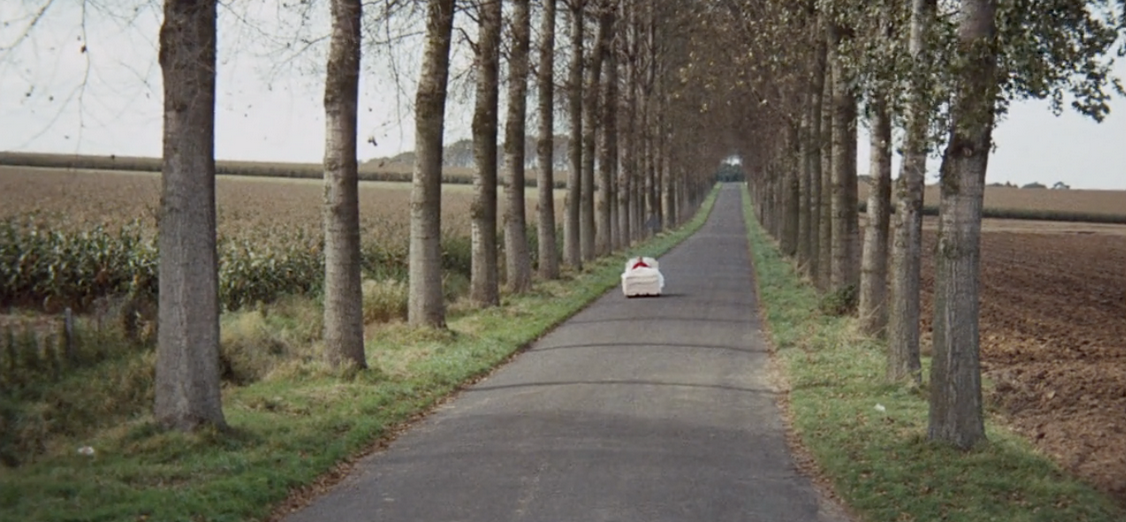
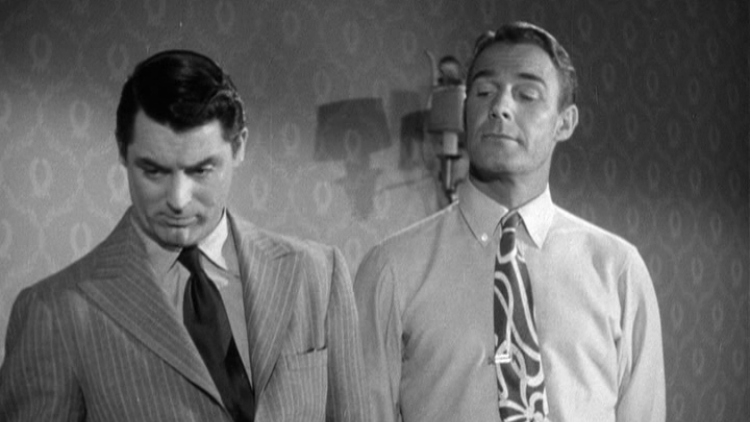
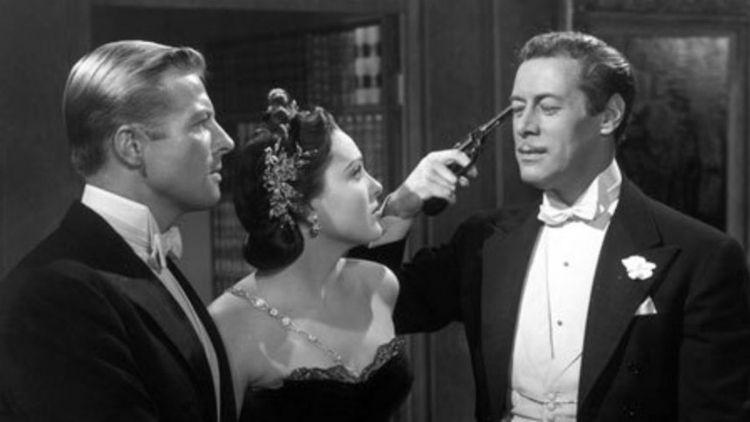

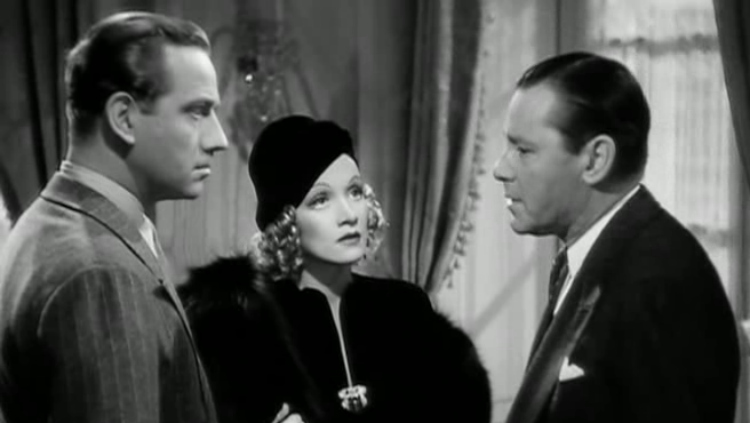
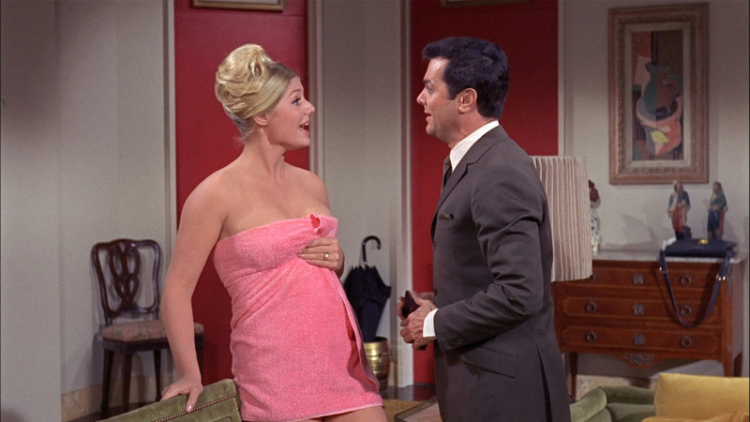
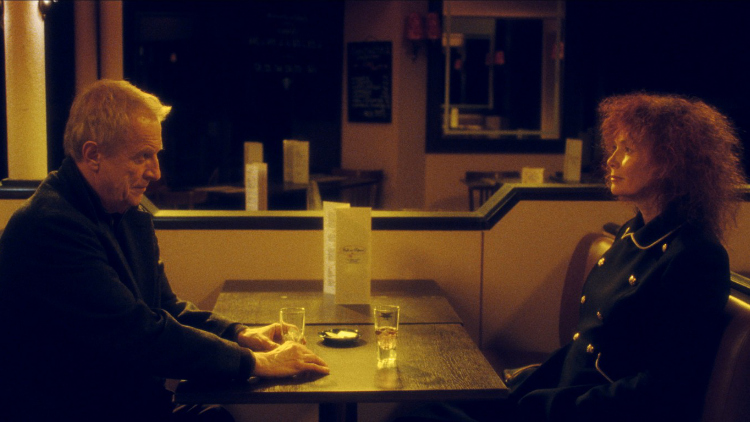
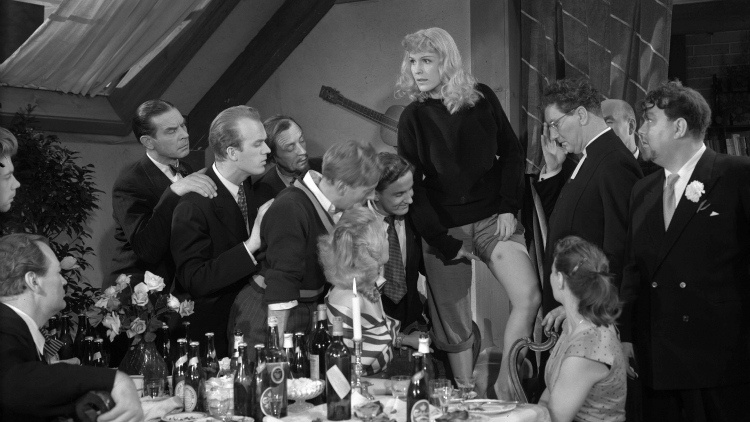
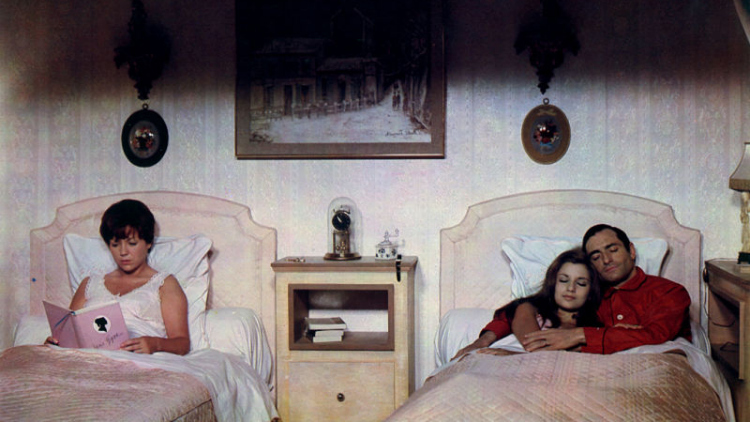
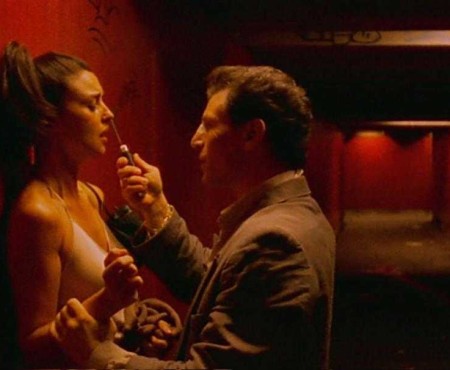
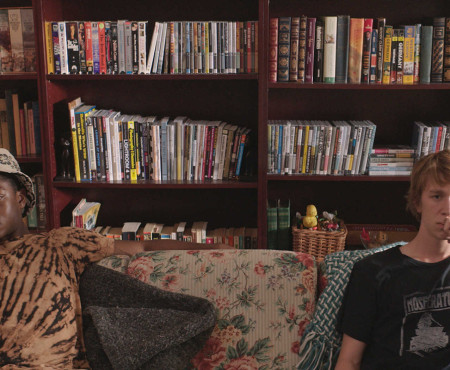
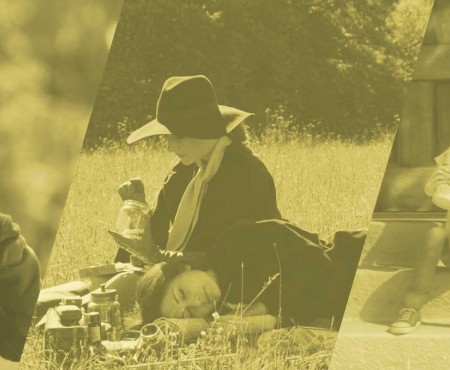
2 thoughts on “Top 10 Comedies About Infidelity”
How about The Good Girl? High Fidelity? Do your grandparents have to be old enough to have seen it in a theater for a film to count?
I mean, does the list have to be predominantly new films? There are two films here from the 2000’s, so I don’t see why you’re complaining… Make your own list, maybe it’ll make you feel better…